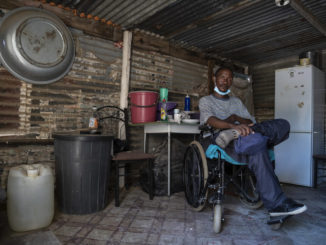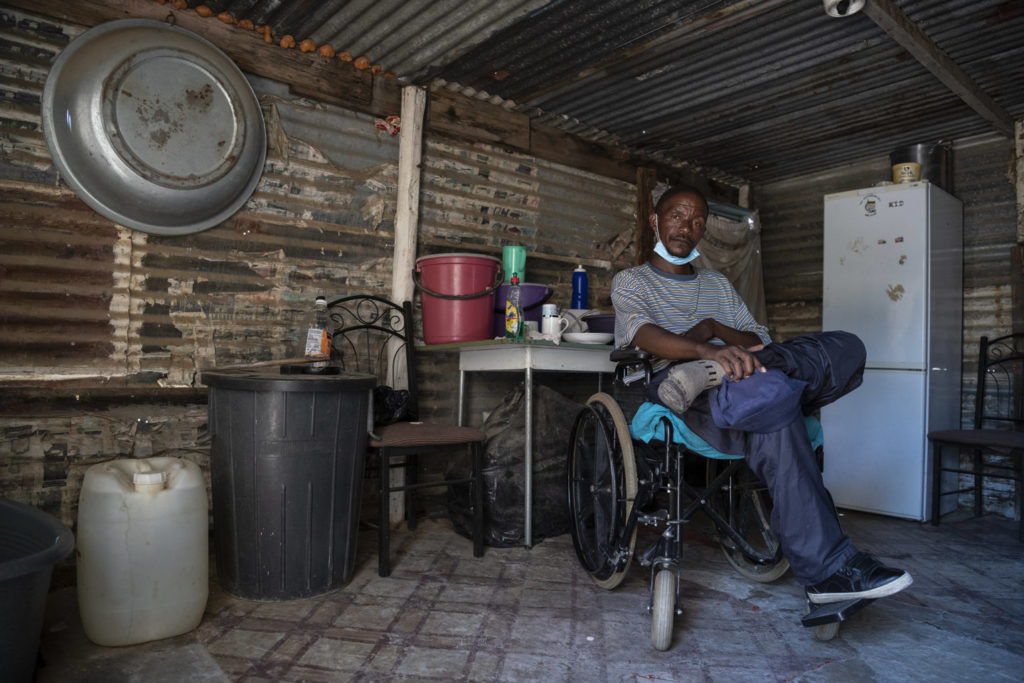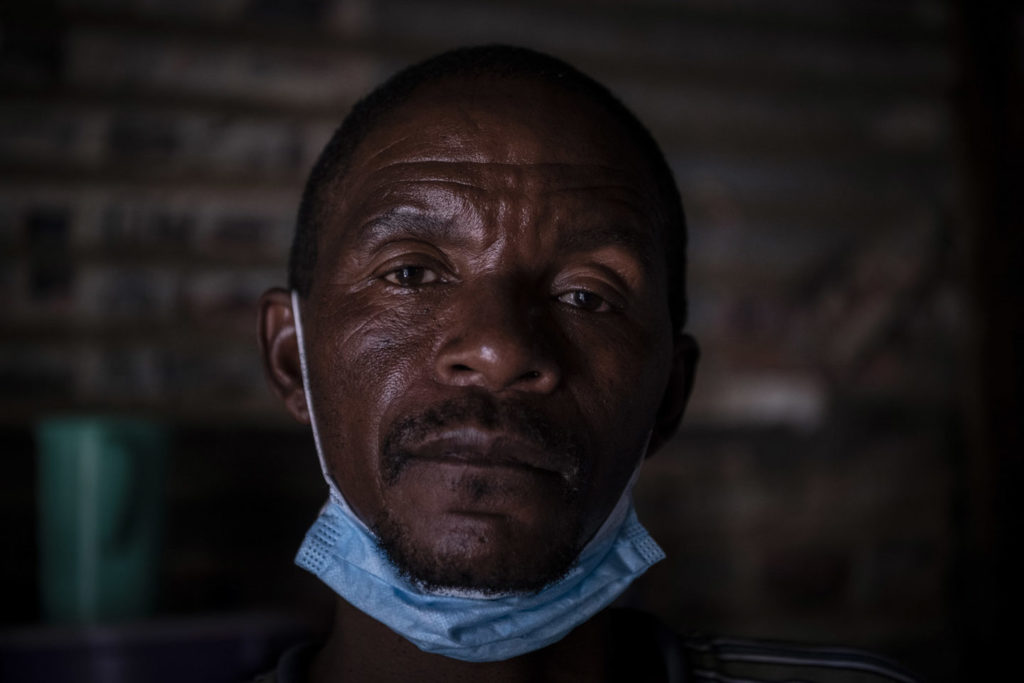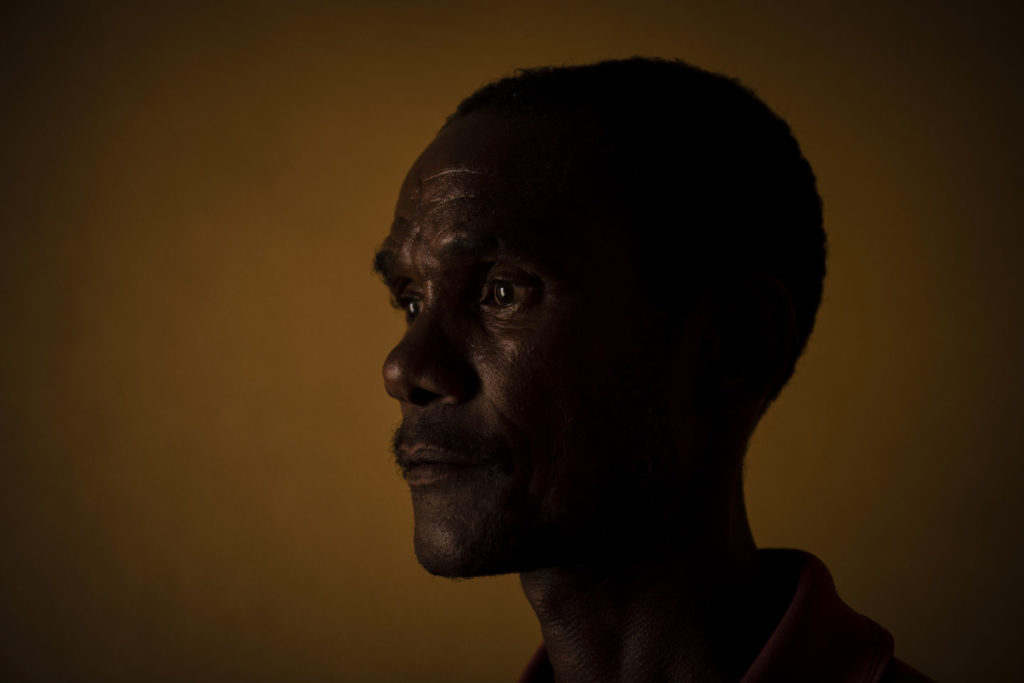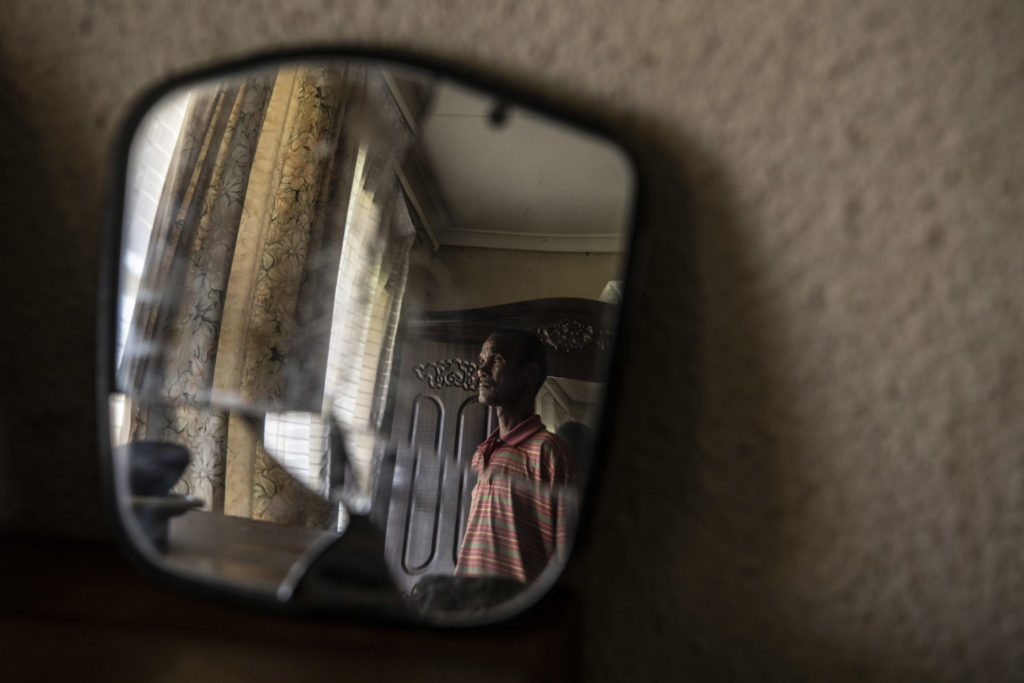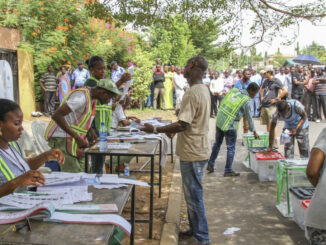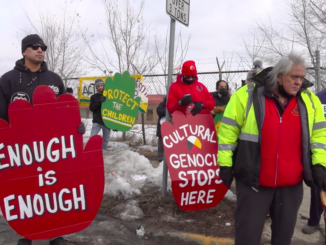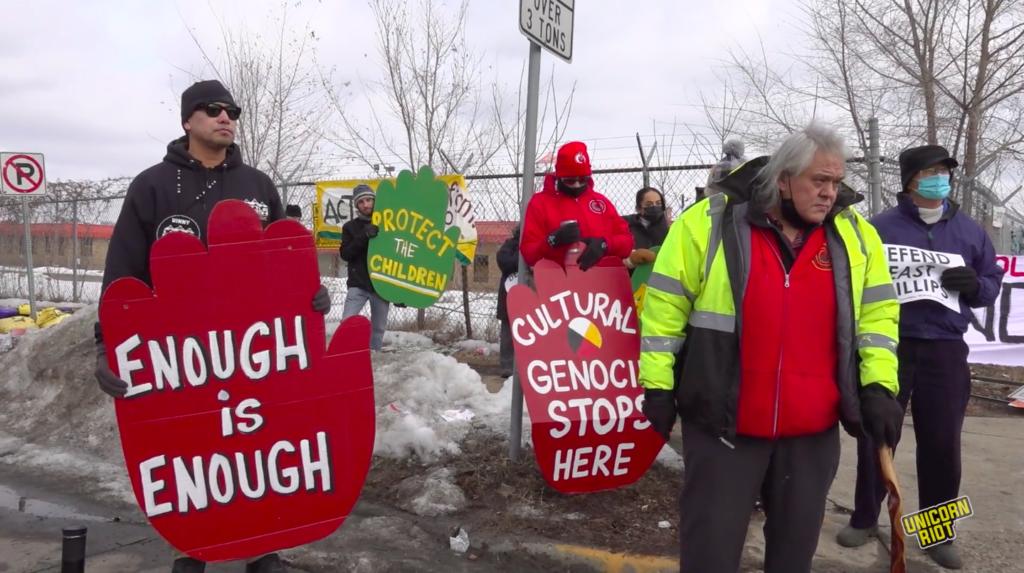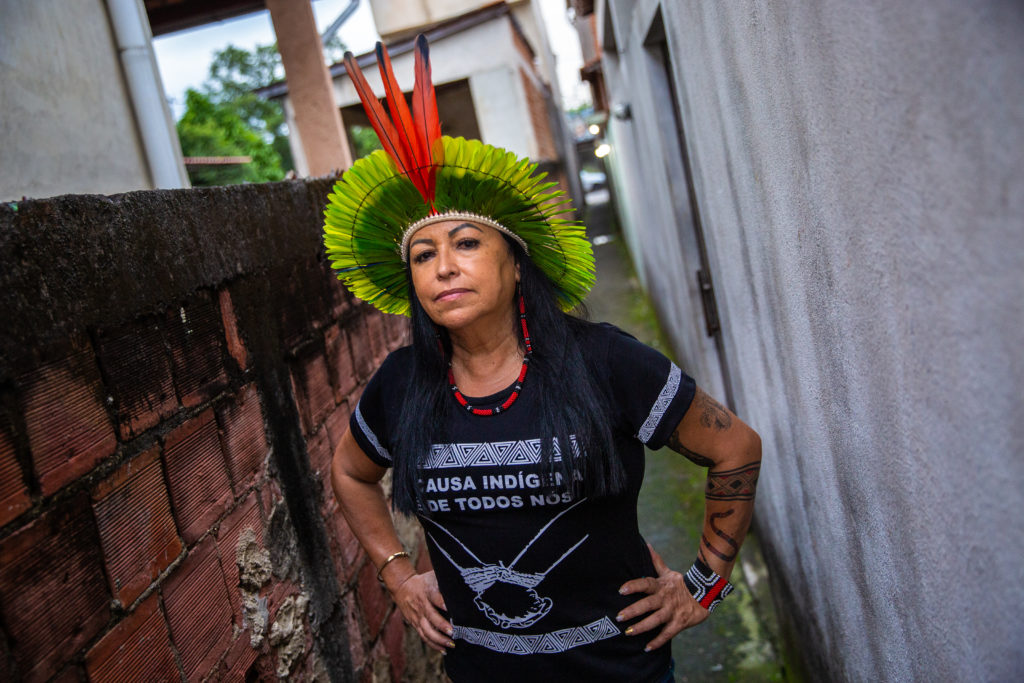
BRASILIA, Brazil—Despite hoping for change under the new Brazilian government, Marize Guarani remembers unfulfilled promises from Lula’s first term in office.
“One thing you can be sure of is that over the next four years, we will be on the streets demanding our rights,” said Guarani, a history professor and president of Aldeia Maracanã, an Indigenous collective based in Rio de Janeiro. (In Brazil, Indigenous people take the name of their people as their surname.)
The victory of Luiz Inácio “Lula” da Silva during the presidential run-off election on October 30 has inspired many sectors of Brazilian society. The sentiment is mirrored internationally, with expectations that Lula’s plan will reverse four years of devastating Amazon deforestation that took place under former President Jair Bolsonaro. According to the Inpe (National Institute for Space Research), during Bolsonaro’s term, the annual average of deforestation was 11,500 square kilometers—or the size of the country of Qatar—in comparison to 7,500 square kilometers under his predecessor.
However, for the first time in Brazilian history, representatives of Indigenous communities have been placed in positions of state power. Brazil will not only have a ministry of Indigenous affairs, but that government body will be led by an Indigenous leader, Sonia Guajajara.
“Today, the Indigenous protagonism within Lula’s government is completely different to his first term in office,” said Elaine Moreira, anthropologist professor and coordinator of the Observatory of Indigenist Rights and Politics project at the University of Brasilia. “Today, it is not possible to govern the country without [Indigenous peoples].”
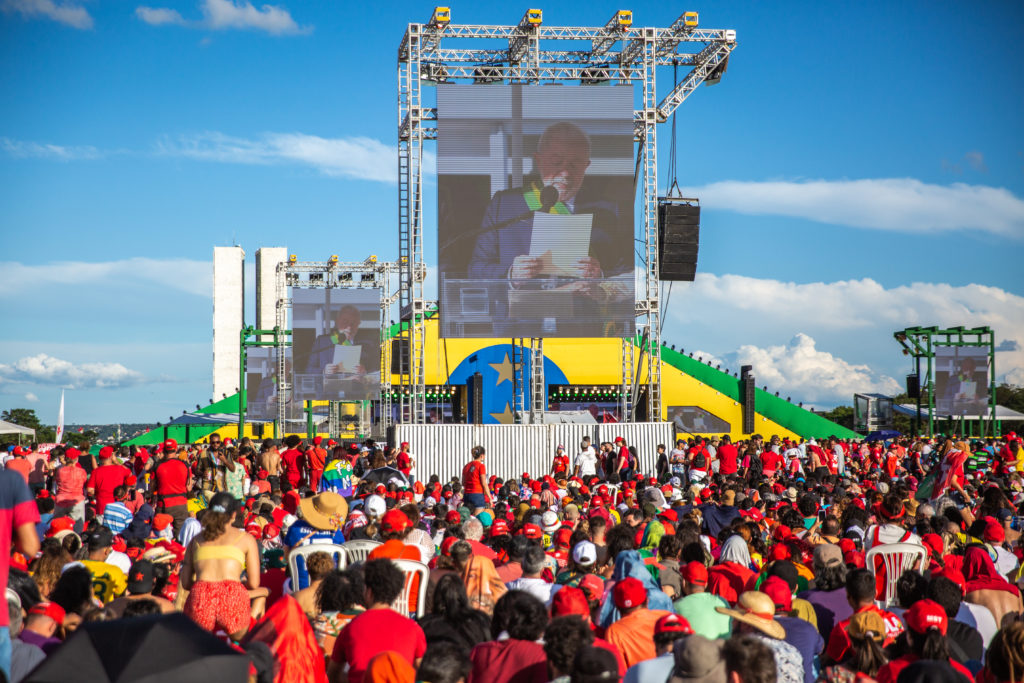
Joy on Inauguration Day
Among the thousands of people who traveled hundreds of kilometers to support Lula during his January 1 inauguration were Indigenous leaders and representatives of communities from all over the country. Hundreds of tents were pitched on December 31 in the Mané Garrincha Stadium in Brasilia, where they celebrated New Year’s Eve. The following day, an estimated 160,000 people mostly dressed in red shirts—the color of Lula’s Workers’ Party—attended the Festival do Futuro (Future Festival). The event was organized to commemorate the shift in power.
“For me, it is priceless to be here,” Vice-Chief Sarapó told Toward Freedom. His name means “Defender of Nature.”
During the celebration, people watched on screens as Lula took the helm. Thousands of Lula supporters danced as a variety of Brazilian artists performed on stage.
“After so much persecution of President Lula, we won the election. That is why Lula is like our Indigenous brother,” added Sarapó, who represented more than 5,000 Pankararú people, who live in the northeastern state of Pernambuco.
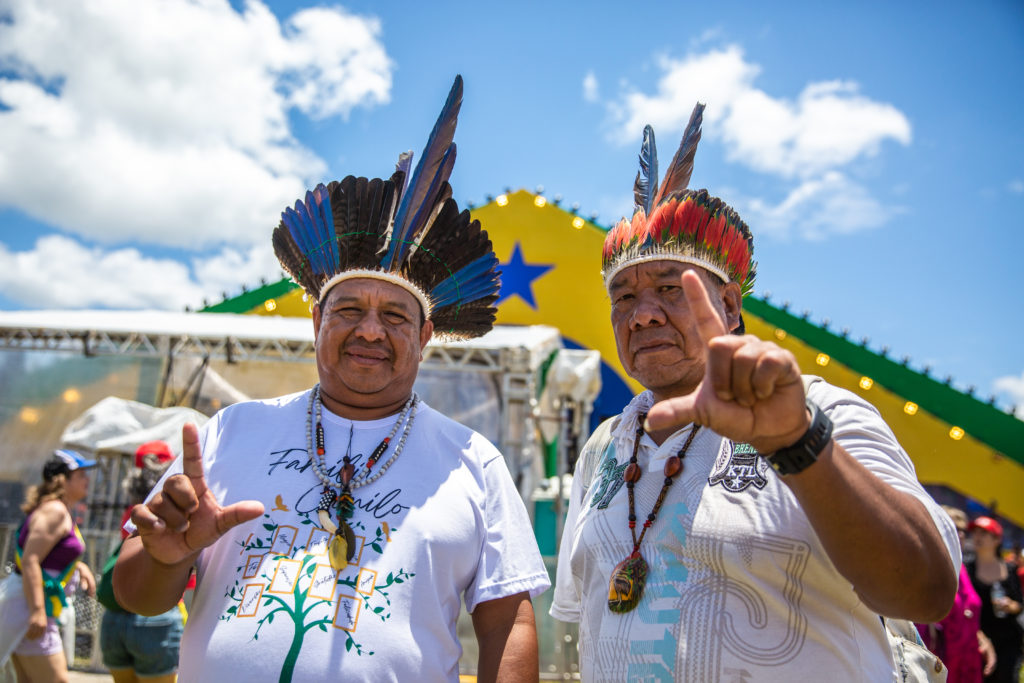
In 2017, Lula was convicted of corruption charges and spent 18 months in prison before a Supreme Court judge annulled the charges, clearing him to run for office.
After Bolsonaro fled the country in what many have seen as an attempt to avoid prosecution for violations during his term, 77-year-old Lula received the inaugural sash from a group of people representing the diversity of Brazilian society. Environmental activist and Indigenous leader Raoni Metuktire of the Kayapo people walked by his side during the symbolic act. Raoni is internationally known for his life-long defense of the Amazon, as well as for his distinctive yellow feather headdress and lip plate. He is one of the last members of his community to use the lip accessory.
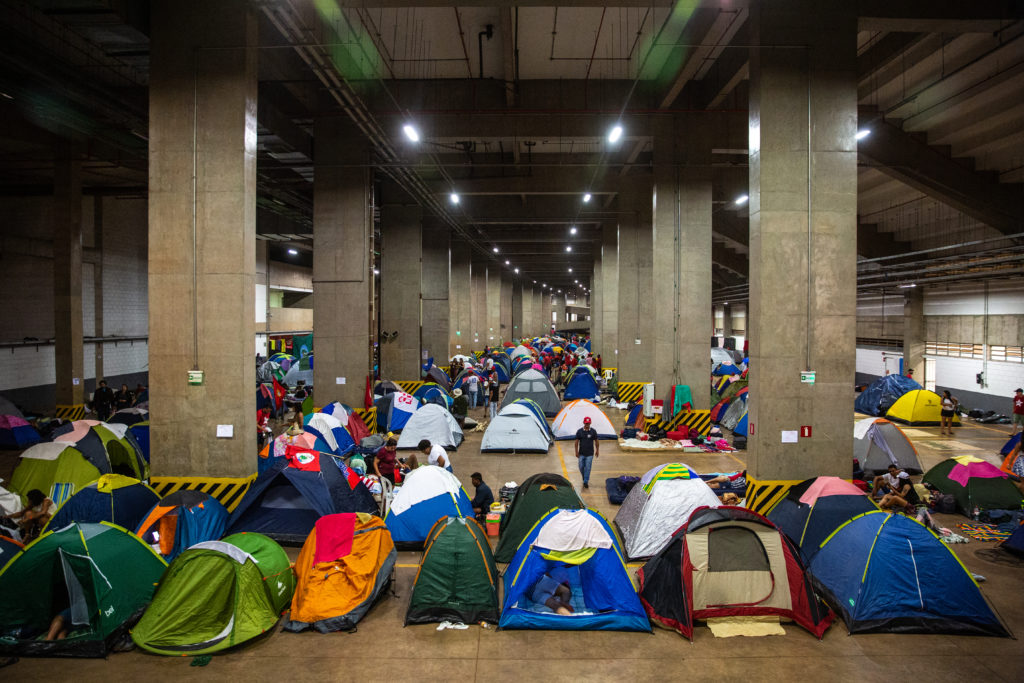
Restructuring Institutions with the Participation of Indigenous Peoples
On January 3, Indigenous leaders and government representatives took part in a symbolic takeover of the Foundation of Indigenous Peoples (Funai). For the first time since the body was created in 1967, an Indigenous person will serve as its president. The Funai’s main responsibilities are defending Indigenous rights, demarcating their territories and protecting the environment within Indigenous lands.
Guajajara, plus Joenia Wapichana as president of the Funai, Célia Xakriabá as federal deputy for the Brazilian state of Minas Gerais and Weibe Tapeba as head of the Special Secretariat for Indigenous Health (SESAI) said they constitute a solid bloc to defend the rights of Indigenous peoples.
“We three seated at this table, occupying strategic places in the institutional politics of the Brazilian state, represent the unity within the Indigenous movement,” Tapeda said at the event.
The room filled with mixed emotion as Indigenous leaders took turns speaking. At times, people hugged and celebrated a hopeful future. At other moments, they shed tears over what they see as four years of anti-Indigenous policy that led to the suffering and deaths of their peoples.
Some, including Lula, have accused Bolsonaro of genocide against the Yanomami people, who are experiencing a malnutrition and malaria crisis that has been linked to the former president’s pro-mining policy and a lack of healthcare.
“We had never suffered as much persecution as in the last four years,” Guajajara said during the event. “A persecution that, on top of everything, came from the same institution that was supposed to protect us.”
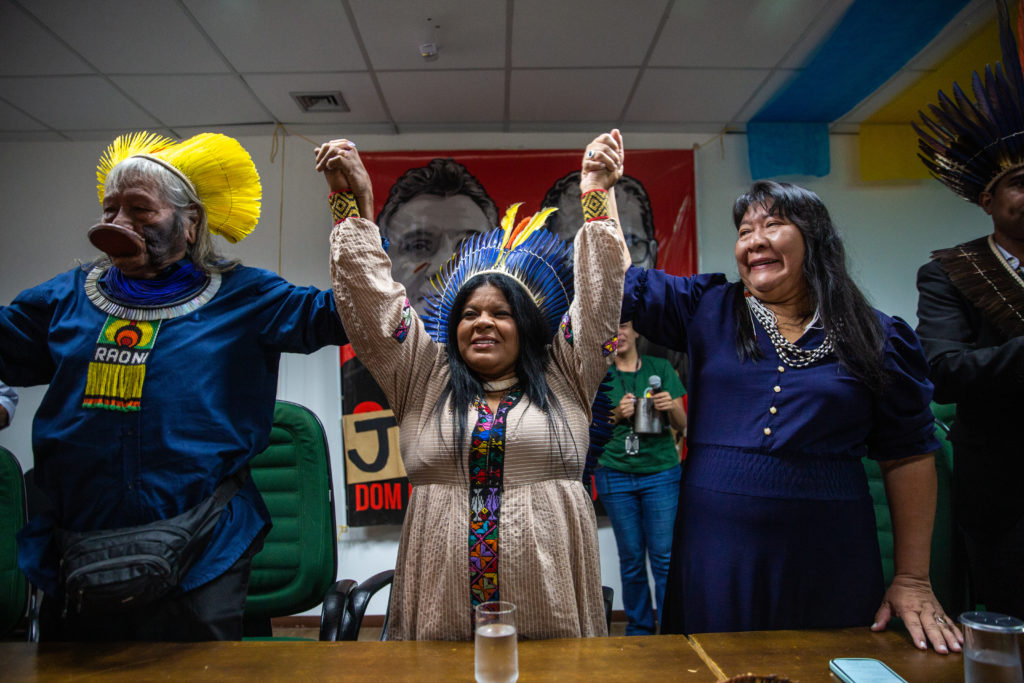
Ensuring Environmental Protection
Lula’s government will face many obstacles with a congress in which the opposition is in the majority. Agribusiness and mining are key industries in Brazil and remain an important lobby in Congress.
Yet, Lula’s promises to center impacted people in his cabinet already have born fruit in the form of a social budget for 2023 that amounts to 145 billion reais ($27.9 billion). This would enable the government to comply with programs, such as subsidies for the most vulnerable sectors of society, increasing the minimum wage, and improving education and the healthcare system. However, questions have arisen about guaranteeing sufficient resources for all departments. Brazil’s economy faces high inflation and interest rates.
Lula’s government has planned to move toward a zero-deforestation economy.
“A solution to climate change does not exist without understanding the contribution that we Indigenous peoples make,” Xakriabá told Toward Freedom.
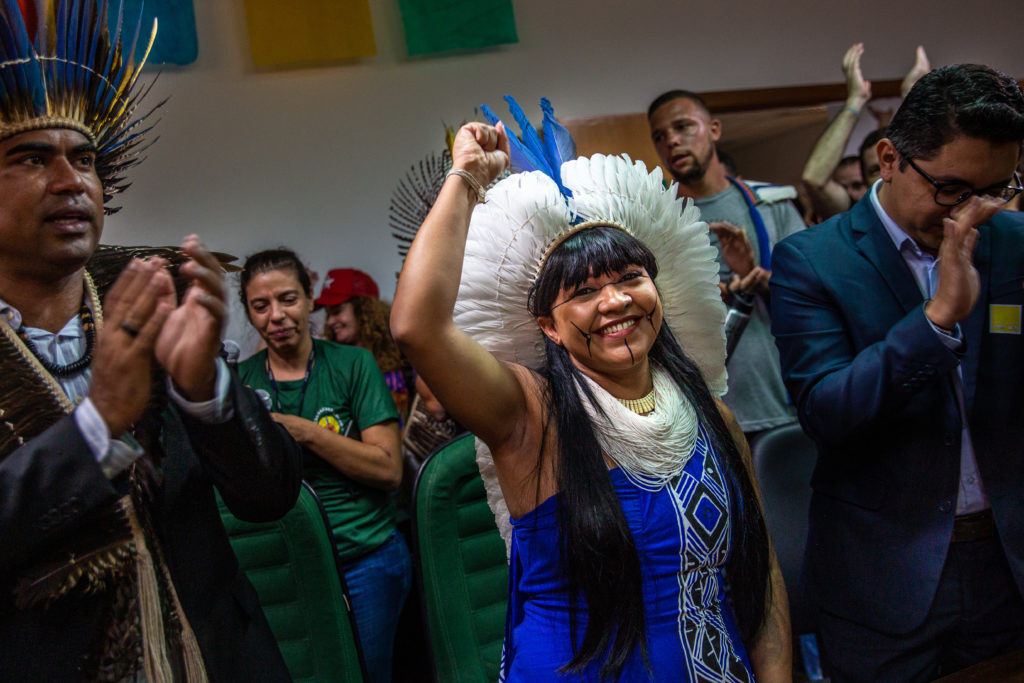
The Ministry of Environment has agreed to create trans-institutional mechanisms that communicate with the Ministry of Indigenous Affairs and all sectors.
“The fact that we have today a Ministry of Indigenous Affairs will affect directly the Ministry of Environment,” said anthropologist Moreira. “Especially in connection to recovering degraded lands invaded by illegal logging, but particularly by illegal mining.”
Gold mining increased 3,350 percent in the last four years, according to “Yanomami Under Attack,” a report that social services organization Hutukara Associação Yanomami released. That spike has been attributed to Bolsonaro’s decree to stimulate gold mining in the Amazon.
Bolsonaro also dismantled and militarized the Funai and other institutions that protected Indigenous communities and the environment. For example, he promoted deforestation to benefit agribusiness. In December, deforestation in the Brazilian Amazon was 150 percent higher than the previous year, according to the national space research agency, INPE. According to a report that environmental-news portal Mongabay cited, 250,000 hectares (620,000 acres) have been lost to private companies. Plus, Bolsonaro stopped Indigenous land demarcation.
However, under Lula, decrees that allowed “artisanal” gold mining on Indigenous land as well as the sale of Indigenous lands farmers had invaded, already have been revoked. The federal police and the Brazilian Institute of Environment (Ibama) will remove illegal gold miners from the Yanomami territories in the Amazonian region, Guajajara was quoted as saying to the journal, Estadão.
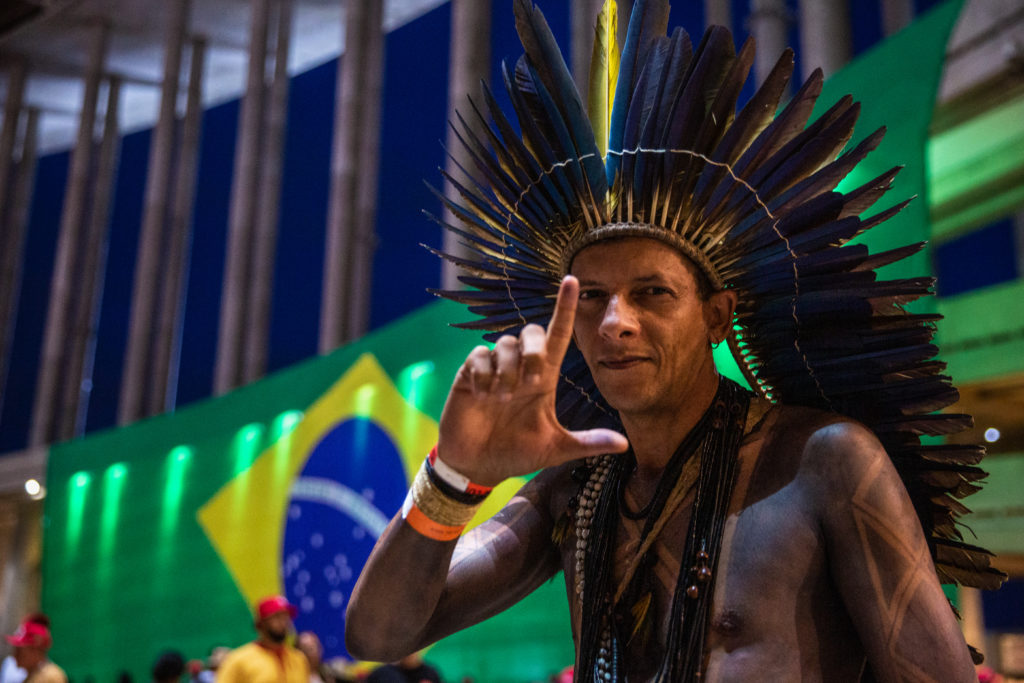
Confidence in Lula
Chief Merong Kamacã Mongoió, who made a 12-hour journey from the Brazilian state of Minas Gerais to commemorate Lula’s inauguration, said he is confident the Ministry of Indigenous Affairs will defend the interest of Indigenous communities over big industries.
“We also contribute to the country. We have family agriculture and agroforestry plantations,” said Chief Merong, whose community is in a land dispute with the mining giant, Vale. “What we do not want is mining, soya expansion, or transgenic plantations in our country.”
Indigenous leaders see land titling as the basis for ending the environmental crisis.
“The struggle to defend Mother Earth is the mother of all struggles,” Tapeda said during the event at the Funai. “We need to restart territorial demarcation now.”
Chief Junior of the Xuhurú people traveled from the state of Pernambuco, almost 2,000 kilometers from the capital. Like many others, he camped out.
“The most important matter at the moment for Indigenous peoples in Brazil is the need for land demarcation. To end logging and mining in our territories, and to expel the settlers that are there today usurping our land and washing it with Indigenous blood.”
Wapichana, Funai’s new president, asked in an interview with Toward Freedom for the public to be patient as the new group of Indigenous officials reorganize the institution.
“Through this union, we will demonstrate how it is to administer from an Indigenous vision.”
Natalia Torres Garzón graduated with an M.Sc. in Globalization and Development at the School of Oriental and African Studies in London, United Kingdom. She is a freelance journalist who focuses on social and political issues in Latin America, especially in connection to Indigenous communities, women, and the environment. Her work has been published in Earth Island, New Internationalist, Toward Freedom, the section of Planeta Futuro-El País, El Salto, Esglobal and others.
Antonio Cascio is an Italian photojournalist focused on social movements, environmental justice and discriminated groups. He has been working as a freelancer from Europe and Latin America. He has also collaborated with news agencies like Reuters, Sopa Images and Abacapress, and his pictures have been published in the New York Times, CNN, BBC, the Guardian, DW, Mongabay, El País, Revista 5W, Liberation, Infobae, Folha de S.Paulo, Amnesty International and others.

